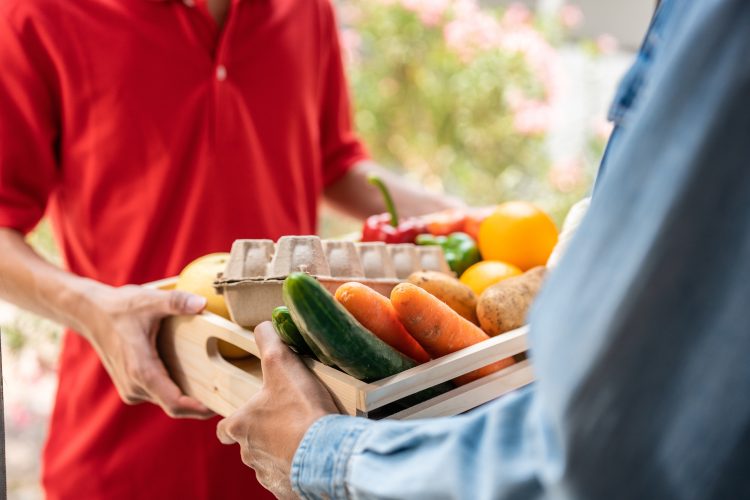A brand new report has claimed that as much as two million tonnes of meals might be saved from being wasted by 2029 with efficient redistribution options.


At present round one third of all meals is wasted, in response to the Meals and Agriculture Group (FAO), nonetheless a brand new research has spotlighted a technique that would doubtlessly save as much as two million tonnes of meals waste.
Biffa, a sustainable waste administration firm, has shared that, inside the subsequent 5 years, as much as two million tonnes of meals waste might be prevented by utilization of redistribution options.
The report itself is titled “The UK Journey to Circularity” and was launched alongside Biffa’s Waste Web Zero convention that happened on the Birmingham Hippodrome on 11 June.
To create the report, Biffa labored in partnership with WSP, the investigation outlines eight interventions wanted from companies, shoppers and the UK Authorities. These eight interventions embody timescales for implementation.
The businesses have discovered that increasing meals redistribution affords the best potential to cut back meals loss and waste, doubtlessly stopping as much as two million tonnes of surplus meals from getting into the waste stream.
New Meals has beforehand reported on quite a few corporations that utilise meals redistribution strategies so as to lower down on meals that might in any other case be wasted, together with Too Good To Go and Olio. Nonetheless, The Biffa Group has highlighted that there has additionally been vital progress in meals redistribution options with its subsidiary Firm Store Group – an organisation that works straight with producers and retailers to assist forestall meals from turning into waste, processing ‘surplus inventory’ which might not make it to shoppers.
From trash to treasure: Revolutionising food redistribution with Olio
Meals redistribution fashions can work in varied methods nonetheless one key instance is that companies can promote short-dated inventory or unsold foods and drinks for decreased costs nonetheless these options largely give attention to the decrease finish of the availability chain. Biffa means that “growth additional up the chain would help better redistribution and supply an outlet for meals loss”.
Going additional, Biffa states that UK Authorities “must play a key position too”, explaining “the present dedication to obligatory segregated meals waste collections – as a part of the Less complicated Recycling laws in England and the already dwell Office Recycling scheme in Wales and present laws in Scotland – has the potential to seize 1.4 million tonnes of fabric that may’t presently be successfully extracted on account of co-mingling with different residual waste”.
The implementation of Less complicated Recycling in England in 2025 would require all UK companies with greater than 10 workers to separate meals waste for devoted assortment for the primary time. A brand new survey by Biffa discovered that Less complicated Recycling is taken into account the second most necessary upcoming waste laws, with practically two-thirds (62 %) of UK companies recognising its potential impression.
Further interventions—corresponding to matching meals provide and demand, redefining the worth of meals, and shifting in direction of reusable packaging, particularly in meals contact functions—might cut back or course of as anaerobic digestion for power restoration, leading to 0.3, 1.1, and 0.13 million tonnes of meals waste reductions, respectively.
Carla Brian, Head of Partnerships at Biffa, outlines the necessities for attaining these substantial reductions: “Current infrastructure capability to deal with upcoming adjustments in how meals waste is collected and dealt with is inadequate, so wants increasing.
“Transport, reverse logistics, sorting, cleansing and storage capability will probably be obligatory if alternatives for meals redistribution are maximised. Anaerobic digestioncapacity may also have to be constructed out as soon as there’s confidence extra meals waste will probably be captured,” continued Brian.
As well as, Brian famous that she believes legislative adjustments to meals waste collections “will generate knowledge that clarifies the scale of the UK’s meals waste downside” and went on to notice “most knowledge presently depends on estimations. Meals techniques reporting (corresponding to obligatory reporting for companies and improvement of a transparent meals hierarchy) would permit for higher understanding of the place and the way meals loss happens and waste is generated, enabling improvement of focused round actions. Implementation of those items of laws must be rigorously thought-about, although, to make sure the impression is just not detrimental to companies.”
What’s extra, Brian highlighted that altering behaviour in expectations on the subject of visible look of meals might minimise waste by eradicating shopper demand for ‘good’ fruit and greens.
“Higher matching of provide to demand would assist shoppers to solely purchase what they want, which might be achieved by promoting extra free produce and eradicating gross sales techniques like ‘purchase one, get one free’ affords,” continued Brian.
“There’s a direct hyperlink between infrastructure and funding, however supplementary funding in areas that support understanding of the impression and effectiveness of change – like meals waste reporting techniques – may also determine alternatives for change and make implementation simpler.”
